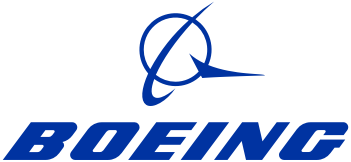
Enrol on this course
Please use the region selector at the top of the website if you are purchasing from outside the UK.
Note: *All prices exclusive of VAT.
Overview
Get hands-on project management experience in just two days. This practical course shows you how to plan, manage, and deliver real projects using proven tools and techniques you can apply immediately at work.
What you will gain
- A clear understanding of the project manager's role
- A structured approach to planning and controlling projects
- Practical tools for scheduling, risk and change management
- Confidence to lead project meetings and communicate clearly
- Insights you can use straightaway on your current projects
Who this course is for
- Team members who work on projects and want more structure
- New or aspiring project managers without formal training
- Business professionals who manage projects alongside day jobs
- Managers who want a concise refresher on core PM techniques
Benefits
Practical and focused
Taught by an expert
Hands-on learning
Immediately applicable
Small class sizes
Great step towards certification
Delivery
This is a 2-day, instructor-led online course. You join a live virtual classroom, interact with your trainer and peers, and work through practical exercises in real time—just as you would in a face-to-face workshop, but without the travel.
Course
Project Management Essentials deepens your understanding of how projects really work. Across two days you follow a project from initial idea through to delivery, learning the key steps, roles, and documents needed to keep everything on track.
Understand the project lifecycle
Define projects clearly
Build realistic plans
Manage risks and issues
Work with people effectively
Control and report progress

Curriculum
The course follows the life of a typical project and covers the following topics.
- Project management fundamentals
- Defining and initiating a project
- Planning scope, time, and resources
- Managing risk, quality, and change
- Leading the team and engaging stakeholders
- Controlling progress and closing the project
Full curriculum details
Project management fundamentals
- What projects are and how they differ from business-as-usual work
- Benefits of using a structured project management approach
- Key roles and responsibilities within a project
Defining and initiating a project
- Clarifying project objectives, scope, and success criteria
- Identifying stakeholders and understanding their needs
- Creating a simple project charter or brief
Planning scope, time, and resources
- Breaking work down using a work breakdown structure (WBS)
- Estimating effort and duration for tasks
- Developing a realistic schedule and resource plan
Managing risk, quality, and change
- Identifying and analysing project risks and issues
- Planning and tracking responses to risks and issues
- Basic quality planning and handling scope changes
Leading the team and engaging stakeholders
- Building and motivating a project team
- Effective communication methods during the project
- Managing expectations and resolving conflicts constructively
Controlling progress and closing the project
- Monitoring progress against the plan using simple controls
- Reporting status to sponsors and stakeholders
- Closing the project and capturing lessons learned
Reviews & success stories
Knowledge Train by numbers
20+
95%
30+
Still have questions? Contact us by phone on 0207 148 5985, via live chat, email, or by completing the form below.
How to find us
Knowledge Train
20 Old Bailey, London, EC4M 7AN,
England, United Kingdom.
Call +44 (0)207 148 5985
Opening hours
Monday to Friday – 09:00 to 17:15
Get in touch
Project Management Essentials Course Overview
This project management essentials course provides corporate training for professionals seeking essential skills to deliver successful projects through classroom or online learning in the UK.
Who Should Attend The Project Management Essentials Training?
This essentials of project management course is suited to learners, managers, and team members with limited experience who want to strengthen their understanding of management essentials.
Core Principles Of Project Management Essentials
The Project Management Essentials course covers key principles, methods, and tools used within organisations to plan, implement, and evaluate projects effectively.
What Are The Core Topics In The Project Management Essentials Course?
Project Management Essentials course delegates study project planning, scheduling, risk assessment, and stakeholder communication using interactive activities and real case studies.
Essentials of Project Management Learning Outcomes And Management Essentials
Essentials of Project Management course participants develop essential management knowledge and practical project management skills applicable across multiple industries.
How Does The Essentials of Project Management Course Improve Project Effectiveness?
The Essentials of Project Management program builds confidence in managing resources, motivating teams, and delivering measurable results aligned with organisational goals.
Corporate Project Management Essentials Courses And Certification Options
This Project Management Essentials courses support CPD goals, offering learners recognised credentials valued by employers and corporate training departments.
Is Certification Included In The Project Management Essentials Program?
Yes, successful participants receive a certificate confirming their competence and readiness to manage projects within professional environments.
Interactive Project Management Essentials Learning Through Classroom And Online Study
Both Project Management Essentials classroom and online learning formats include interactive sessions, enabling learners to engage directly with project management professionals.
What Are The Benefits Of Blended Learning?
Combining online learning with classroom discussion enhances flexibility, collaboration, and knowledge retention across different learning styles.
Essential Project Management Methods And Tools
This Project Management Essentials training introduces structured project management methods, frameworks, and tools that improve effectiveness in daily work.
Applying Essential Project Management Techniques
Delegates practise applying essential tools to manage timelines, budgets, and risks while maintaining communication with stakeholders.
Risk Management And Organisational Effectiveness
The Project Management Essentials course explores how risk management supports organisational success by anticipating and mitigating project issues early.
How Are Risk And Quality Managed In Projects?
Project Management Essentials learners analyse scenarios to identify potential risks, ensuring project quality and continuity throughout the project lifecycle.
Building Employability Through Project Management Essentials Training
By mastering Project Management essentials, learners increase employability and career potential within corporate and project-focused roles.
How Does This Project Management Essentials Course Support Career Growth?
The Project Management Essentials program strengthens leadership, communication, and problem-solving abilities essential for progression in project management and corporate leadership.
Continuing Professional Development (CPD) In Project Management
This Project Management Essentials training aligns with CPD frameworks, promoting continuous learning and professional advancement.
Next Steps After The Project Management Essentials Course
Project Management Essentials graduates are encouraged to continue their learning journey through advanced certifications and higher-level corporate training programs.









